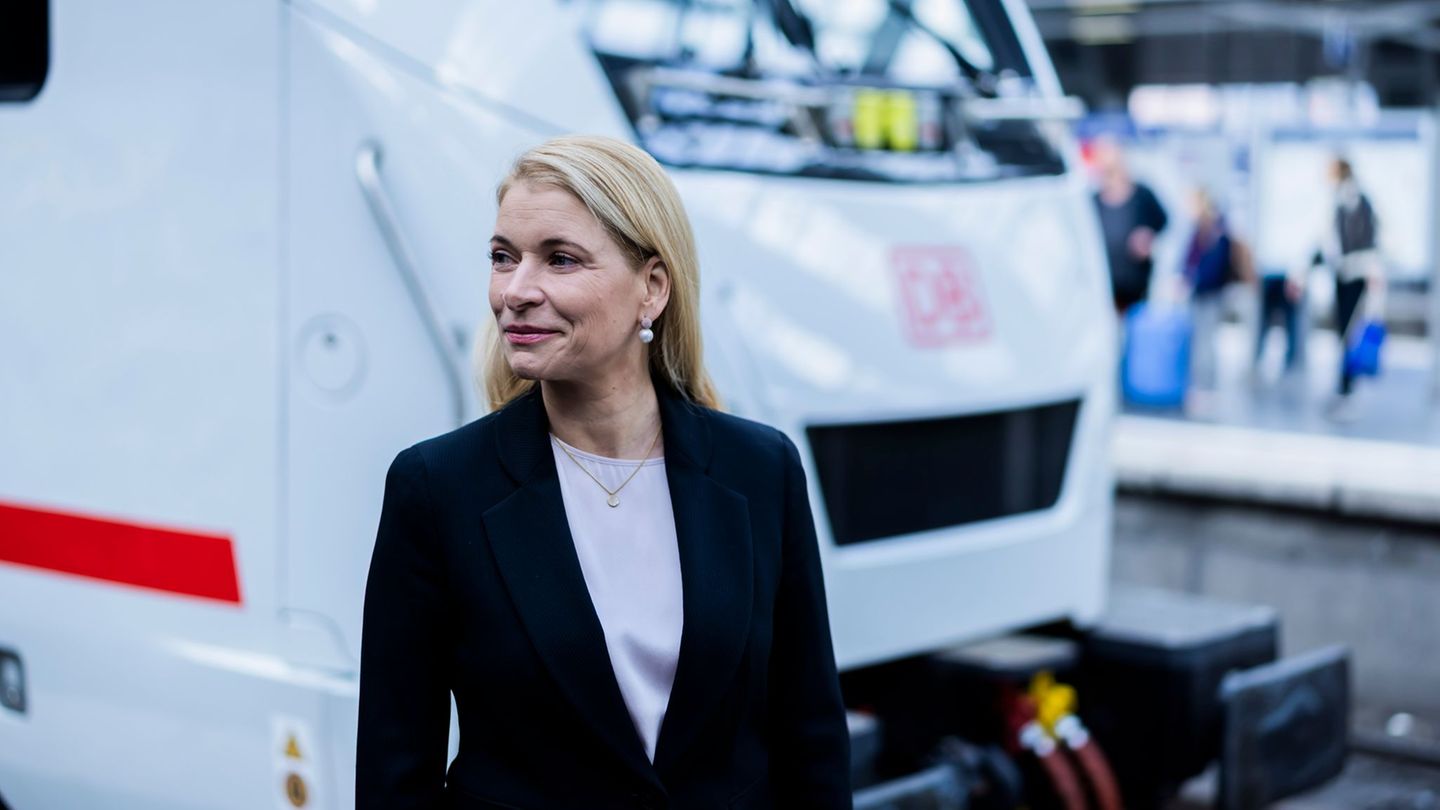German railway
New railway boss: 2026 year of major restructuring
Copy the current link
Add to watchlist
The new boss of Deutsche Bahn, Evelyn Palla, wants to transform the federally owned company: more responsibility across the board, leaner structures at headquarters. What do the passengers get out of it?
The new railway boss Evelyn Palla wants to fundamentally reorganize the federally owned company from next year. “The year 2026 will be the year of major restructuring in which we will realign ourselves,” she said in Berlin. A key goal is to decentralize the existing organization. “We want to bring decision-making structures into the area and relocate them to where the challenges are best known,” emphasized Palla, who has been at the helm of the railway since the beginning of October. The manager said the concrete concept should be developed by December.
More personal responsibility in the regions
What it already reveals: In the future, regional managers should be able to manage the operational business in the respective regions more independently. In return, they should be given more freedom of choice and resources. At the same time, in the future they will also be responsible if things don’t work and the quality and cost-effectiveness are not right. As an example, the manager referred to the maintenance and timely provision of regional trains.
In this way, she has already restructured Deutsche Bahn’s regional transport division, emphasized Palla, who was previously responsible for this area as board member. DB Regio made a profit in the first half of the year for the first time in years.
She left open how she now wants to make long-distance and freight transport more decentralized. Breaking things down into regional units doesn’t work easily there, she admitted. “Nevertheless, we will ask ourselves whether it is possible to anchor corporate responsibility in long-distance transport more regionally than is the case today.”
The essential element of the renovation is speed. “We will start implementing it from January 1st.” The realignment is also accompanied by a streamlining of the central management structures. Jobs would also have to be reduced. Palla did not give any figures. The group with hundreds of holdings and subsidiaries has more than 230,000 employees.
Palla is putting the S3 restructuring program, which was only launched around a year ago by the then railway boss Richard Lutz, up for discussion. Palla emphasized that central elements, such as the general renovation of important routes, the improvement of operations and the financial restructuring of the heavily indebted state-owned company, remained in place. Nevertheless, she had to adapt the program. “I would like to create a different basis so that these measures take effect and reach the customer,” she said.
It remained unclear when passengers would notice the positive effects of the new group structure. In the short term – as the federal government’s new rail strategy envisages – cleanliness and safety at train stations should improve. However, even Palla will not be able to solve the main problem, the high level of unreliability, especially in long-distance transport, as a result of an aging and overloaded route network, so quickly.
Restructuring of the board is already underway
The new railway boss has already taken action in terms of personnel. On Wednesday it was announced that freight transport director Sigrid Nikutta was to vacate her post. Their restructuring concept for the ailing division was rejected as inadequate in an external report. According to reports, Pallas’ successor for regional transport will be Harmen van Zijderveld. He was previously responsible for the rail department on the board of the railway subsidiary DB Regio.
The former manager at the Hornbach hardware store chain, Karin Dohm, is considered the new head of finance. She would succeed Levin Holle, who left the company in the spring for a position in the Federal Chancellery. Both personnel details still have to be decided by the supervisory board.
dpa
Source: Stern




